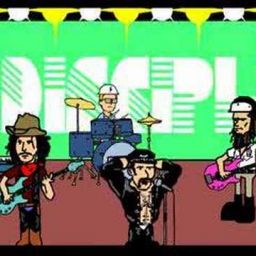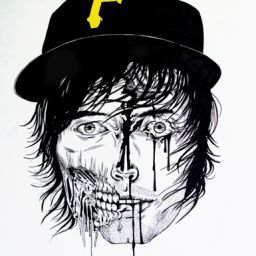One of my favorite metal bands, The Dillinger Escape Plan, recently left their record label, Relapse, after their contract expired. According to the following interview with lead singer Greg Puciato, the band has tentative plans to go independent with their next full-length release, inspired by the Radiohead and Nine Inch Nails model:
It seems so unnecessary now to sign a contract that’s based on an industry model that doesn’t exist anymore. Relapse did everything they could for us and everything is cool with them, but after being on the same label for ten years it feels unbelievable to know that we could literally self-fund a CD and just put it out the way Nine Inch Nails and Radiohead did. We can do whatever we want, y’know? The fact that we managed to not get big, but big enough, means that we have enough of a cult following that people might buy just as many records from us as they would from a store. There’s no point of having a record label behind you unless you have a chance of becoming a Walmart band like Nickelback or some huge entity. We don’t really foresee that in our future. I think we’re starting to get to the point where we view bands like Nine Inch Nails and Radiohead as our peers, and even bands like Aphex Twin. Those are forward-thinking bands. We see ourselves regardless of any genre of music, and we don’t see ourselves aligned just with heavy bands. Like I said before, we have a cult following and we’re not little but we’re not big. I’m happy with where we are, and if we can just maintain the same quality control over our stuff as Nine Inch Nails and Radiohead do, I’ll be happy.
Why is this news, you ask? Because I think if they do go this route, their success would bea perfect example of Wired founder/important dude Kevin Kelly’s theory of “1000 True Fans.”
A True Fan is defined as someone who will purchase anything and everything you produce. They will drive 200 miles to see you sing. They will buy the super deluxe re-issued hi-res box set of your stuff even though they have the low-res version. They have a Google Alert set for your name. They bookmark the eBay page where your out-of-print editions show up. They come to your openings. They have you sign their copies. They buy the t-shirt, and the mug, and the hat. They can’t wait till you issue your next work. They are true fans.
Clearly far from a household name, the band has, nonetheless, developed an extremely passionate and loyal fanbase, due in part to their ridiculous chaotic energetic live performances, as best exemplified here:
[youtube=http://www.youtube.com/watch?v=r-lxwlgyhhA]
IMO, a household name artist with a past track record of mainstream success would never be an ideal test for this theory, but DEP is. They’ve been demonstrating it for awhile now. Take for example their recent promotion, where the band has sold limited edition t-shirts inspired by the titles of songs from their latest album. Sold only from the band’s MySpace page, the t-shirts have been repeatedly selling out. No middle man, no label, just selling directly to their passionate fans, and said fanbase (myself included) is lapping it up.
And for bands with niche audiences like DEP, maybe this model is more appropriate. Their brand of discordant, multi-tempo, aggressive metal doesn’t really have much chance of hitting it big on mainstream radio, and the record industry, still focused on hit-making. would brand these guys failures, despite a loyal fanbase that would continue to support the band, album after album and for every tour.
The real test of this model, at least when it comes to the music industry, is touring and promotion. 1000 True Fans don’t mean squat to a venue owner of a 2,000 seat theater who plans to book you for a night. That’s where casual fans do make a difference.
Having the PR muscle of a label (even a smaller label, like Relapse) behind you is crucial when you’re out on the road, and DIY promotion can only do so much, when you’re trying to get the word out in the areas where your True (and casual) fans can best be reached. Of course, this is where social media – MySpace, Facebook, etc. is a boon, but can it match what a label can do?
Time will tell.
In the meantime, I’ll be eagerly waiting to purchase DEP’s next limited edition shirt from their MySpace page.





[…] I’ve been following the Wizard Rock phenomenon for awhile now because of my interest in music and my own fascination (and admiration) of these bands (mostly kids and teens) who have fashioned their own DIY subculture and microeconomy, selling CD’s, playing alternative spaces like libraries and coffeeshops, building a subgenre and a community from the ground up. Once again, it’s the 1000 true fans idea put into practice. […]
[…] I joke. There is no mention of fandom at all, beyond a page-long dismissive mention of the concept of 1,000 true fans, no mention of consumer buy-in, nothing beyond “you parasite.” In a book about digital culture, […]